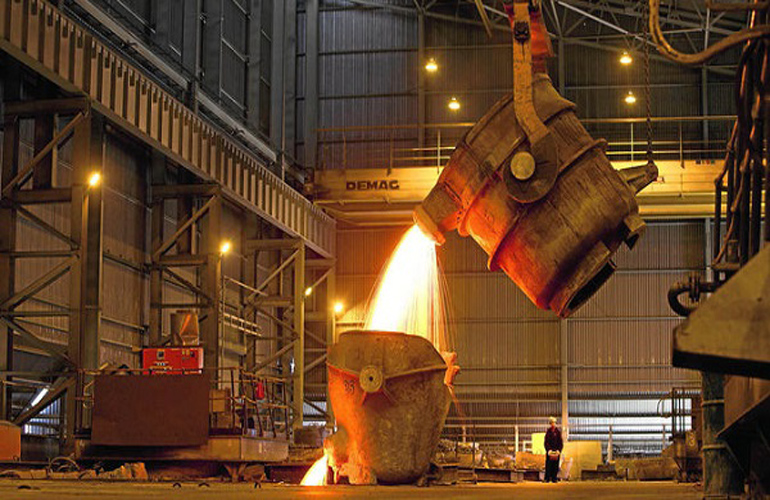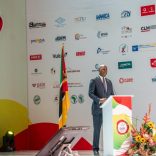Mozambique: Central bank makes €54.9M loss in 2024, lower profit in 2023
Mozambique: Aluminium export revenues nearly double YoY in Q1, reaching US$380.7 million

File photo: AIM
Mozambique’s aluminium export revenues, which rely entirely on the operations of Mozal—the country’s largest industrial company—nearly doubled in the first quarter of 2025, reaching US$380.7 million (€323.2 million), according to official data.
A report from the Bank of Mozambique detailing exports from January to March, compiled today by Lusa, shows that aluminium exports rose from US$202.2 million (€172 million) in the first quarter of 2024 to US$380.7 million (€323.2 million) in the same period of 2025.
“The improvement in aluminium revenues was due to the increase in export volume (45%),” the report notes.
Of the total US$440.1 million (€374.2 million) exported by the Mozambican manufacturing industry in the first quarter, more than 85% corresponded to aluminium bars—an activity carried out solely by Mozal. The company recently warned of a potential shutdown in 2026, citing ongoing problems with electricity supply to its plant in Maputo province.
“The Mozambican government is, and will continue to be, committed to supporting Mozal. At the same time, it will continue negotiations to improve the terms of the agreement and ensure continued production in Mozambique, providing all necessary conditions without disadvantaging any of the parties,” said Inocêncio Impissa, spokesperson for the Council of Ministers, after its meeting in Maputo on August 26.
According to Impissa, the government is engaged in a “much more amicable dialogue” with all stakeholders—including Mozal, Hidroelétrica de Cahora Bassa (HCB), and South Africa’s Eskom—aiming to ensure that all interests are “legally protected and fairly represented.”
Impissa acknowledged the “set of risks” linked to the crisis at Mozambique’s largest industrial firm and confirmed that Mozal had terminated contracts with some suppliers. However, he clarified that this move is unrelated to the ongoing negotiations.
Mozal, which employs around 5,000 people at Africa’s second-largest aluminium smelter on the outskirts of Maputo, announced in August that it plans to reduce investments and lay off contractors. It intends to maintain operations only until March 2026, when its current electricity supply contract expires, claiming it cannot sustain operations under the current terms.
In a market statement, Australian mining group South32, which leads the Mozal operation, said it has been in discussions with the Mozambican government, HCB, and Eskom—Eskom buys power from HCB and sells it to Mozal—“to ensure a sufficient and affordable electricity supply” that would allow operations to continue beyond March 2026.
“This announcement [regarding Mozal’s possible closure in 2026] was followed by the sudden termination of contracts with around 20 Mozambican supplier companies, directly affecting approximately 1,000 jobs and jeopardising the survival of businesses with decades of uninterrupted collaboration with the smelter,” said Álvaro Massingue, president of the Confederation of Economic Associations (CTA) of Mozambique, in August.
Mozal purchases nearly half of all electricity produced in Mozambique and is estimated to contribute at least 3% to the country’s Gross Domestic Product (GDP).
On August 18, President Daniel Chapo said the electricity tariffs proposed by Mozal would lead to the financial collapse of HCB, reacting to South32’s threat to shut down operations in 2026.
Mozal’s electricity supply is currently provided by Eskom, which purchases around 66% of HCB’s total production, but the government plans to reverse this trend.
As reported by Lusa in February 2024, the Mozambican government intends to begin repatriating, starting in 2030, the electricity it has exported from HCB to South Africa since 1979. This is part of the national Energy Transition Strategy through to 2050.











Leave a Reply
Be the First to Comment!
You must be logged in to post a comment.
You must be logged in to post a comment.